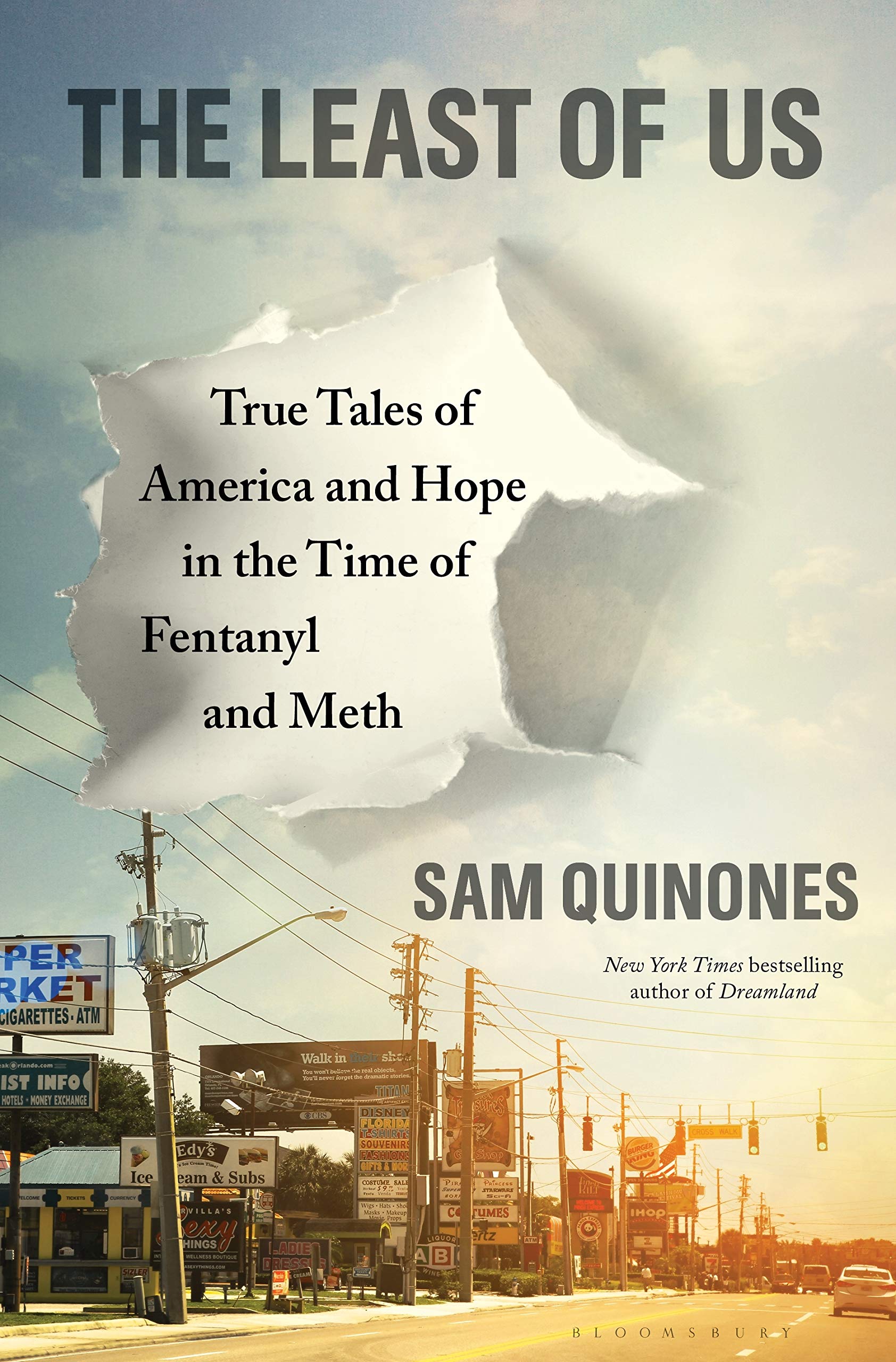The Least of Us: True Tales of America and Hope in the Time of Fentanyl and Meth by Sam Quinones (Bloomsbury)
Sam Quinones follows up Dreamland, his NBCC-award winning account of the opioid epidemic, with a sweeping and deeply empathetic story of even more dangerous drugs shot through with glimmers of hope. Just as Dreamland documented how the rise of prescription pain pills led to an unchartered market for heroin use, The Least of Us: True Tales of America and Hope in the Time of Fentanyl and Meth tracks the changes in synthetic drug manufacturing on the black market, such as fatal fentanyl and a toxic new formula for methamphetamine. It also explores the nature of addiction, with many chapters devoted to neuroscience studies on sugar and highly processed food, as well as the isolating and me-first conditioning of habitual internet use, to show we are all vulnerable to addiction.
The story of the “fentanyl gold rush” begins in 2014 with the Magic Bullet kitchen appliance, which countless unschooled manufactures used to mix fentanyl, bought cheaply on the internet, with heroin, not knowing or not caring that the blender isn’t very good with powders. Thus, their product often contained a guaranteed deadly dose of fentanyl. Quinones also shows how in the last decade, after meth manufacturers lost access to ephedrine, users accustomed to a euphoric high from the drug were overtaken by a new version that could be made in high quantities with readily available chemicals, and which was just as addictive but induced symptoms of paranoia and schizophrenia and ruined people’s lives to the point that the nature of rehab programs needed to be re-envisioned.
For the book, Quinones traveled to towns transformed in the postindustrial era, and again by the grip of opioid addiction, such as Muncie, In., and Clarksburg, W.V., and talked with people who are in recovery as well as those serving prison sentences for dealing. He also tells the stories of those who now lead efforts to meet the growing demand for treatment, such as Lou Ortenzio, a former doctor from Clarksburg who became addicted to the pain pills he prescribed with such great frequency that in 2006 he faced federal fraud charges. The investment Quinones put into this project yields genuine feelings of hope, as he shows what can happen when people re-emerge from their various forms of isolation and help each another rebuild their lives and communities. It’s a marvelous achievement.



